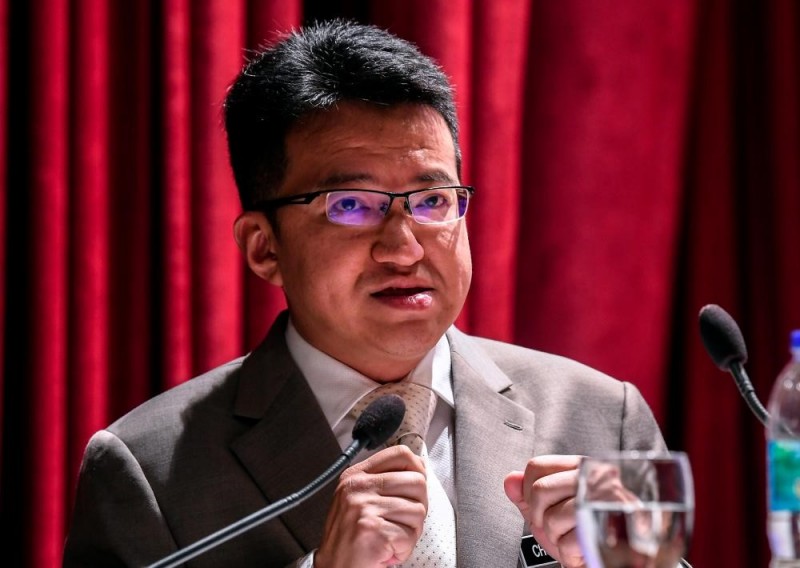
KUALA LUMPUR: The Asia Pacific Economic Cooperation (APEC) needs to ensure that trade policies among its member countries prioritise green economic policies and build a resilient global health system.
Deputy Minister of Investment, Trade and Industry Liew Chin Tong (pix) said this is because when Apec was established in 1989, the world was coming out of the Cold War era.
“Many are confident about the future, and some even hope that the countries of the world will cooperate more, however, today we see the world getting darker, faced with various simultaneous crises such as pandemics, wars and geopolitical tensions, financial crises and inequality, as well as climate change,“ he said.
Therefore, he said Apec countries need to ensure that their trade policies prioritise green economic policies and be able to build a resilient global health system.
Liew said this when speaking at the “Supporting the Multilateral Trading System” session during the 29th Apec Trade Ministers’ Meeting which took place from May 25 to May 26 in Detroit, United States.
Malaysia also called on Apec to ensure that its member countries do not enter into economic decoupling so that that the world will not be divided into two blocs.
“It is important for us to ensure that Apec, the World Trade Organization (WTO), and the Multilateral Trade System continue to move forward,“ he added.
In addition, Liew said Malaysia is also looking at a new vision of Apec trade that is pro-worker and its benefits that rise from the bottom up and from the middle up are a new way of looking at trade and are believed to be able to end the ‘race to the bottom’ competition that harms workers, brings down product and service quality, as well as weakening regulations over the past 40 years.
“However, we need to realise that this mission will only be complete if it can protect the middle class in developed countries as well as in Malaysia and other developing countries, especially in Southeast Asia.
“This vision needs to ensure that there will be quality jobs with fair wages and better business opportunities for small and medium enterprises (SMEs) in all APEC member countries,” he added.
Malaysia also urges Apec to ensure that trade will benefit all in addition to achieving the Putrajaya Vision 2040 that was agreed upon at the Apec Summit 2020 when Malaysia was the host, which is to create an open, dynamic, resilient and peaceful Asia Pacific community.
Meanwhile, in another session titled ‘Fostering Sustainable and Inclusive Trade in the Region’, Liew noted that Malaysia approved the National Investment Aspiration (NIA) in 2022 in an effort to improve a more sustainable investment approach.
He said NIA’s aspirations include efforts to increase economic sophistication, create high-quality jobs, expand domestic linkages, develop new and existing clusters, increase inclusivity, and implement ESG – environmental, social and governance.
“Malaysia is currently drafting the New Industrial Master Plan (NIMP), which is based on the vision and aspirations of the NIA, to be a guide to the country’s trade, investment and industry,” he added.
Bursa Malaysia has also decided to make ESG and carbon declaration mandatory from December 2023 for all public-listed companies and micro, small, and medium enterprises (MSMEs) in their supply chain, said Liew.
Source: https://www.thesundaily.my/business/apec-needs-to-ensure-trade-policy-prioritises-green-economy-build-resilient-global-health-system-liew-KD11034385

